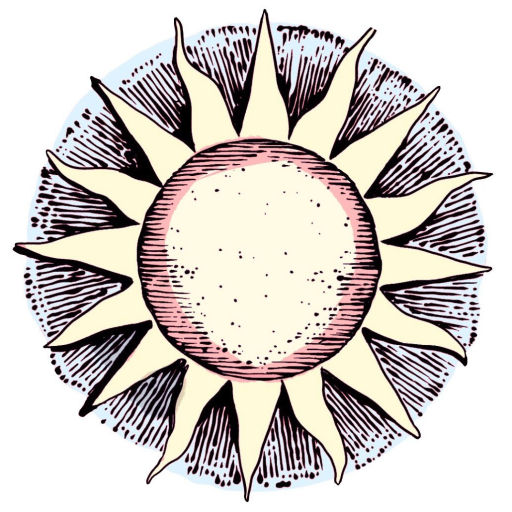‘‘Autumn by the Wayside’ is primarily a book about strange places and the events they sometimes host but it is also, occasionally, a book about strange events and the venues at which they sometimes occur. Take, for instance ‘The Waterhole Death Sequence,’ which is not limited to any particular locale but occurs regularly in every U.S. town, city, and urban sprawl (and likely outside the U.S. as well, if one believes in that sort of thing). An archaeologist will tell you ‘The Waterhole Death Sequence’ is an ancient tradition, an American feature before roads existed to define the wayside’s boundaries. But they only know it for what it was.
Animals congregate at a waterhole and, inevitably, some of them die there. Their bones gather in the soil, frozen in the positions of death long after the water and life have gone from the place. We find them layered in nested circles, huddled closer about the center as time passed and the waterhole shrank to a puddle.
The ‘Waterhole Death Sequence’ can be observed in real time. As cities consume towns, as gentrifiers consume neighborhoods, the locals find refuge in the waterhole and the waterhole, in turn, hosts death. When the post office has closed and the cemetery encroaches with the molasses-speed of vultures grown fat, the waterhole’s light will be the last to wink out, casting skeleton shadows of the way things were.’
“We used to come here every week,” the Editor says, peeling the laminate from a cocktail menu, “I thought it’d make me happy to be back.”
‘Yui’s’ is a shithole, a dive bar for financial reasons rather than aesthetic. The ash tray between us shivers under the ceiling fan. It spills its contents over the plastic rim, deformed as it is by burns. The place is crowded, as though everyone still living in the gutted town nearby is present, but nobody speaks. When they do, it’s only to murmur something in the ear of their neighbor or to order a drink or to cough. ‘Yui’s’ is a shithole but it’s not among those listed in ‘Autumn by the Wayside.’
One of the Editors used to come here and the current Editor was insistent we stop.
“Every Sunday for three years we came to this place. And if something came up Sunday? We’d go Monday instead. Once a week, no matter what, until…”
“Until what?” I ask.
“Until she found out what was happening,” she says, suddenly more willing to distance herself from the previous Editor, “She was the one with the limp- the one that died on the gray road. Before we-”
“Became friends?”
“Realized we weren’t unlimited.”
“Shitty way to go.”
“The town I’m from is a lot like this. I think they all are. That’s why there’s always an empty lot to walk past.”
“Hmm.”
A group of three steps into the bar and stand at the entryway, seeing that the chairs and tables are taken. They look expectantly at the Editor and I.
“We should track down the people from Zeitgeist Publishing. There’ll be, like, records of them somewhere.”
“And then what?”
“And then we find out what’s going on!”
The group at the door have stopped moving altogether. They don’t approach us. They don’t approach the bar. They wait for the table and I raise my own empty glass to my mouth so that it might encourage the Editor to finish her own drink- a quarter cup of watery beer she’s nursed for nearly 45 minutes. When she doesn’t, I speak.
“Every time I think I find someone who knows what’s going on they tell me I’m supposed to be the expert. The rangers told me they didn’t make the path, they just keep it safe. The strangers didn’t make it either, they’re trying to turn it back over to whatever it was before people came along. I assumed there was at least a direction or a destination until you told me that the organization of the book is meaningless. What makes you think the publisher knows anything?”
The Editor is quiet, then, but she finishes her beer.
“Sometimes you find a path in the woods,” I tell her, “And it’s just something an animal made. Sometimes it’s just the easiest route between two places.”
“What sort of animal made this path?”
I shrug.
“There’s nothing easy about this.”
-traveler
